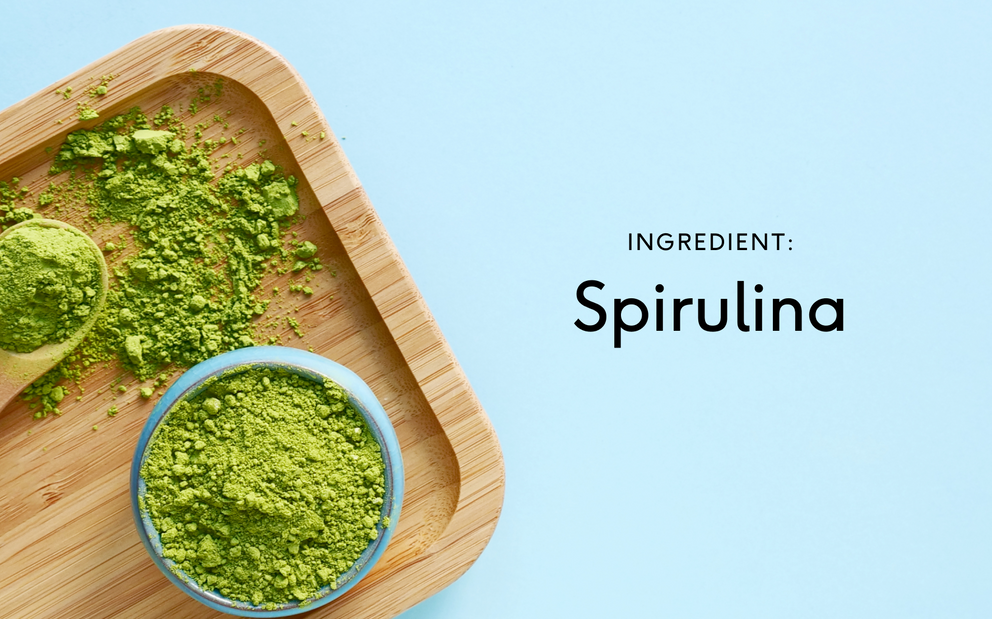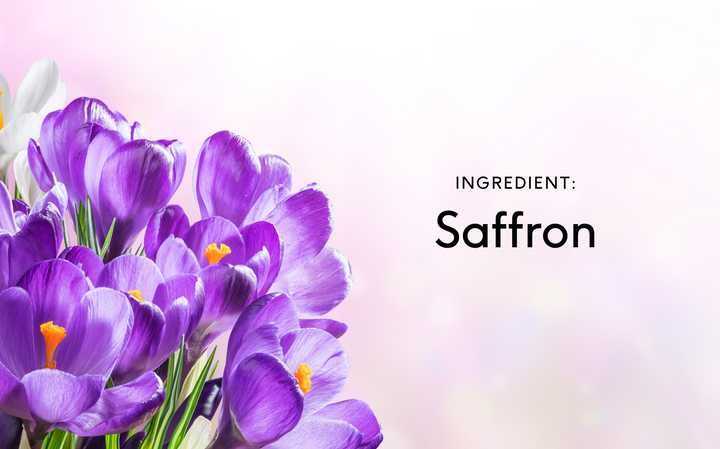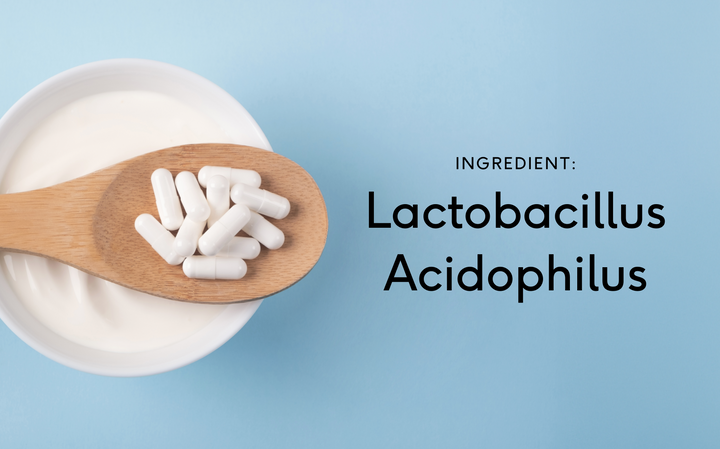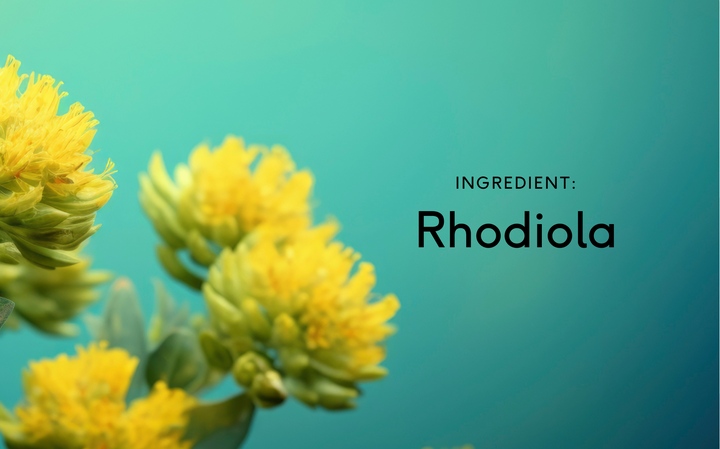Learn About Spirulina in 5 Minutes
Table of contents

What is Spirulina?
Spirulina is a type of cyanobacterium that has valuable nutritional properties. This tiny bacterium is spiral-shaped, and it has a bluish-green hue that’s visible in spirulina powder. In the body, spirulina mainly acts as an antioxidant and immune modulator, and this activity has a variety of different widely-documented benefits.
- Various mechanisms of action allow spirulina to increase your energy levels and combat chronic fatigue
- Helps with allergies by preventing the release of pro-inflammatory histamine
- Reduces cholesterol, helps with heart disease, and prevents diabetes
- Appears to have potent antioxidant and anti-inflammatory effects
Why we love spirulina
There are millions of different kinds of bacteria in the world. Some types are good, some are bad, and spirulina definitely falls into the “good bacteria” camp. This bluish-green cyanobacterium has a variety of well-documented medical benefits, and it’s relatively easy to render spirulina into a powdered form an add it to supplements.
While scientists still don’t know a lot about spirulina, it’s clear that this substance has no serious side effects and is at least beneficial in some ways, which is why we decided to include spirulina in our brand-new Feel Multivitamin™. Spirulina is all-natural, and already, nutritional experts are calling this substance the “supplement of the future.”
Unbelievable benefits of spirulina
Here are just a few of the ways that spirulina has been documented to improve human health and well-being:
Energy and Chronic Fatigue Benefits
Spirulina contains substances called polysaccharides, which help your digestive organs release energy. This effect raises the levels of healthy lactobacillus in your digestive tract, which enables the production of natural vitamin B6. It’s well-known that the B vitamins facilitate energy release from food, which means that spirulina seems to help you feel more energetic in a variety of different ways.
For people who suffer from chronic fatigue, everyday tasks can seem like insurmountable chores. With spirulina, you can help your body produce the energy it needs to feed your cells properly and keep your body and mind in tip-top shape.
Allergy and Immune Benefits
Spirulina essentially works as a natural antihistamine without all the side effects. While there’s a lot we still don’t know about how spirulina interacts with the human immune system, it appears that this substance has potent anti-allergy effects that will put even the most stuffed-up hay fever sufferer at ease.
This natural substance fights allergies by preventing the release of histamine, which is a pro-inflammatory substance that causes allergic reactions. Scientists don’t know exactly how allergies work, so it can’t be said that spirulina is a cure for rhinitis, hay fever, and other related conditions. However, it’s a straight fact that any substance that exerts antihistamine action will reduce allergic symptoms.
Cardiovascular & Diabetes Benefits
A 1998 study indicates that spirulina lowers bad cholesterol, which reduces your risk of heart attacks, strokes, and other types of heart disease. The researchers “gave 4.2 g day−1 of Spirulina to 15 male volunteers and, although there was no significant increase in high-density lipoprotein (HDL) levels, they observed a significant reduction of high-density lipoprotein (LDL) cholesterol after 8 weeks of treatment.”
A small study of diabetes patients in India sought to establish the potential benefits that sufferers of this condition might gain from spirulina supplementation. This study found that spirulina reduces triglycerides and lowers blood glucose levels in addition to reducing unhealthy cholesterol.
Anti-inflammatory and Antioxidant Benefits
While clinical research into the anti-inflammatory and antioxidant benefits of spirulina is limited, detailed analysis of the spirulina cyanobacteria has detected the presence of a variety of different proteins and other substances that have the ability to scavenge free radicals and prevent inflammation in other ways.
It appears that spirulina exerts the majority of its benefits via its ability to modulate inflammation and other immune functions while simultaneously reducing oxidative stress throughout the body by scavenging free radicals. While reducing oxidative stress usually reduces inflammation as well, substances that achieve both effects at the same time are rarer, which truly makes spirulina a superfood of the future.
With so many benefits, it's no wonder Spirulina is considered a superfood! We've included 15mg of Spirulina in Feel Multivitamin, an easy and convenient way to experience all these amazing benefits.
Is spirulina water-soluble or fat-soluble?
Since spirulina is neither a vitamin nor a mineral, it can’t be said that this substance is either water-soluble or fat-soluble. At the same time, however, spirulina contains various vitamins and minerals, and these nutrients may be either water-soluble or fat-soluble.
Where can spirulina be found naturally?
Spirulina can be found in powdered form, and it can also be consumed in the form of live bacteria cultures. There are no known products that use this form, however; the only feasible way to consume spirulina is to use its powdered form.
What is the recommended daily value for spirulina?
There is no recommended daily value for spirulina. Even if regulatory agencies wished to set a daily guideline for this substance, spirulina is not a vitamin or a mineral, which means that it would be regulated differently.
While the medical benefits of spirulina are well-known, there are no indications at this time that this bacterium will be recognised as essential to human diet in any way. On the contrary, it’s likely that spirulina will continue to be viewed as a “super-food,” i.e. an edible substance that contains an incredible concentration of potent antioxidants, immunomodulators, anti-inflammatories, and other beneficial substances.
Spirulina is beneficial compared to other superfoods due to its powdered form. This form makes it easy to add spirulina to a variety of different foods, beverages, and other edible substances, and it’s even easy to pack a hefty helping of this beneficial cyanobacterium into your daily capsule of Feel Multivitamin.
Can you absorb enough of spirulina from food?
Spirulina powder is easy to mix into food, and it tastes great too. You can add spirulina to your smoothie or yogurt in the morning, and you can put some in your protein shake in the afternoon. Spirulina is even delicious to sprinkle on stir fries, pastas, and other popular dinner dishes.
At the same time, however, it can be hard to keep track of all the health food products that are filling up your cabinet. Taking the time to find your spirulina throughout the day and add it to food can be more trouble than it’s worth, but it’s still natural to want to take advantage of all the benefits that this vegan superfood offers.
That’s why we decided to include a big dose of spirulina in our new version of Feel Multivitamin. Our daily multivitamin already blew the competition out of the water, but we aren’t ever content to settle for what we’ve already accomplished. Here at WeAreFeel, we’re dedicated to crafting the best multivitamin ever made, and as new insights into the world of nutrition become available, we will always incorporate them into our ultra-convenient daily multivitamin.
Why is spirulina necessary for your body?
When describing the effects of a substance on the body, laying down the parameters can be tricky. Do you detail the infinite individual ways that spirulina boosts your metabolic processes, fights off invaders, and heals tissues, or do you paint the effects of this incredible cyanobacterium in broad strokes?
Spoken as broadly as possible, spirulina boosts your body’s defences, improves its efficiency, and helps it grow and thrive. It achieves these results by helping your cells repair themselves and keeping harmful substances at bay. Specifically, spirulina contains substances that serve as antioxidants and immunomodulators.
Antioxidants neutralise free radicals, which are rampaging oxygen atoms that steal electrons from your cells. Immunomodulators, on the other hand, change how the immune system functions. In traditional allopathic medicine, these substances are usually used to either suppress or excite the immune system, but natural immunomodulators generally help keep your body’s defence grid in homeostasis.
There’s still a lot we need to learn about spirulina, but current science suggests that this bacterium is one of the most powerful immune-boosting and cell-protecting substances on the planet. By reducing oxidative stress and balancing your immune system, spirulina puts a stop to inflammation, which some scientists believe is the root of all disease.
Functions of spirulina
Energy-boosting: The polysaccharides in spirulina increase the levels of healthy lactobacillus in your intestines, which helps your body produce vitamin B6. As one of the B vitamins, this nutrient plays a key role in delivering energy throughout the body, and vegans need all the B6 they can get.
Heart protection: Spirulina appears to lower your levels of bad cholesterol, and this substance’s antioxidant and immune-boosting properties also increase your cardiovascular health.
Allergy reduction: Allergic reactions, such as hay fever, are caused by your immune system. Immunomodulators like spirulina help your immune system run smoothly, which reduces allergic conditions.
Diabetes benefits: Limited research shows that the cardiovascular benefits of spirulina reduce the comorbid conditions that diabetics experience.
Symptoms of spirulina deficiency
Spirulina is not a vitamin or mineral, and it is not recognised as an essential nutrient. When you don’t have enough antioxidants in your body, however, you age prematurely, you have reduced energy, and you’re more at risk of catching illnesses and contracting diseases.
When your immune system isn’t operating at peak efficiency, you’ll experience increased levels of chronic inflammation, you may experience changes to your metabolism, and your overall pain levels will increase. Therefore, while it isn’t technically possible to be deficient in spirulina, it’s still easy to feel the need for this powerful immunomodulating and antioxidant substance.
How long do you need to take spirulina to start experiencing its benefits?
Since spirulina is a complex bacterium, it deploys its effects throughout your system relatively rapidly. You should start to notice the pain-fighting and healing properties of spirulina right away, and the amazing properties of this nutrient will truly sink in once you’ve been taking spirulina for a few weeks.
Consistency is key and our research recommends taking your Feel supplements for at least 3 months to allow your body to adjust and provide the desired benefits.
How long does it take for your body to digest/absorb spirulina?
Some sources say that most forms of dried spirulina powder contain 50-70% beneficial proteins. The majority of the other substances in this cyanobacterium, however, aren’t simply junk. This beneficial substance also contains plenty of vitamins, minerals, and other natural components.
How long does spirulina stay in your body after you take it?
Some of the vitamins and minerals in spirulina may stay in your body for quite some time. The proteins in this bacterium, however, are absorbed and processed relatively quickly.
Is spirulina an antioxidant?
Yes. Most sources agree that spirulina is one of the most potent antioxidant substances ever discovered.
Can you overdose on spirulina? What are the effects?
There are no known cases of overdose on spirulina. This substance is not known to have any detrimental effects.
Does spirulina dissolve, flush out, or build up in the body?
After it is ingested, spirulina is broken down into its component parts, and these parts are all processed differently.
Can you take spirulina during a diet?
Spirulina is a plant-based, gluten-free substance that will not interfere with your diet. In fact, this bacterium’s digestive benefits may even help you lose weight.
Are there synthetic forms of spirulina?
There are no forms of synthetic spirulina. While this bacterium is usually grown in a lab, it is all-natural.
Why might synthetic forms of spirulina be better?
There is no reason to believe that synthetic forms of spirulina would be more desirable in any way.
Absorption rate of synthetic spirulina
Like natural spirulina, synthetic forms of spirulina would likely consist of multiple components that each have different bioavailability.
Why might natural forms of spirulina be better?
Natural spirulina has been proven to be beneficial for consumption. Synthetic spirulina is still theoretical.
How to take spirulina
You can add spirulina to shakes, smoothies, and yogurt, and you can also sprinkle it on your main dishes. Otherwise, take this beneficial bacterium in a daily Feel Multivitamin capsule.
Spirulina trends in medicine
Currently, scientists in India are trying to figure out how to use spirulina to solve this country’s hunger crisis. A 2019 research paper discusses ongoing efforts to optimise the biomass yield of spirulina cultures and take other measures to improve nutrition in impoverished provinces.
Why everyone should be taking WeAreFeel supplements
Here at WeAreFeel, we aren’t satisfied with the types of nutrients that science already says are essential. Our understanding of how the body works remains limited, but we’ve learned so much more about nutrition in the last few decades that sticking with the wisdom of the past would be the wrong move. Feel Multivitamin takes a bold step toward the future by including natural, vegan ingredients like spirulina, and that’s only the beginning of what our new daily capsule formula has in store.
Here’s the Proof
- Spirulina in Clinical Practice: Evidence-Based Human Applications
- Inhibitory effect of mast cell-mediated immediate-type allergic reactions in rats by spirulina.
- Cholesterol lowering effect of spirulina
- Studies on the Long-Term Effect of Spirulina Supplementation on Serum Lipid Profile and Glycated Proteins in NIDDM Patients
- C-Phycocyanin, a selective cyclooxygenase-2 inhibitor, induces apoptosis in lipopolysaccharide-stimulated RAW 264.7 macrophages.




















































 Back
Back





